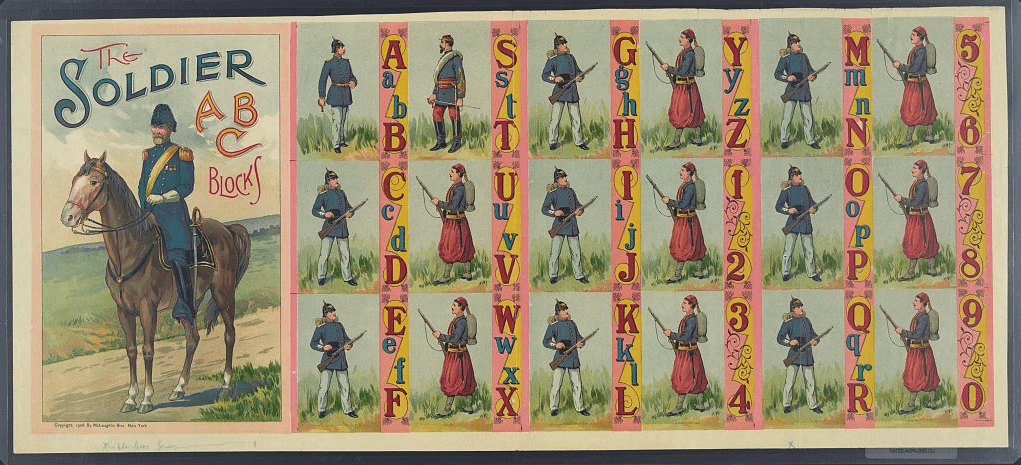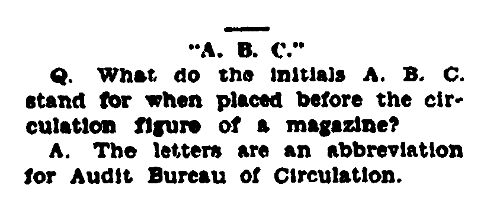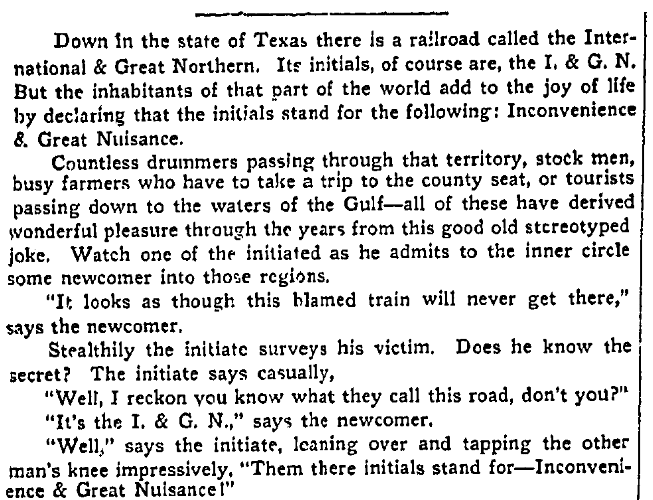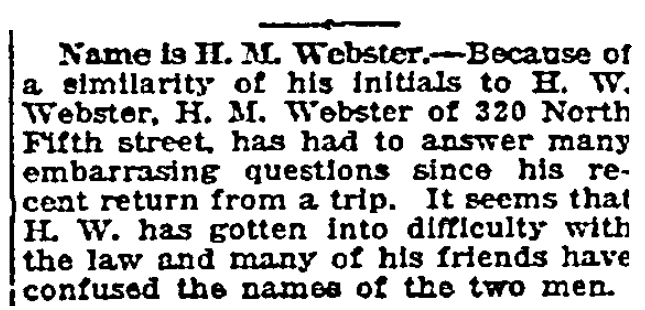Introduction: In this article, Mary Harrell-Sesniak writes about how abbreviations and acronyms change meaning over time – and what the implication of this is for genealogists. Mary is a genealogist, author and editor with a strong technology background.
While perusing social media genealogy sites, I often come across the “what does this mean” questions.
With regularity, researchers wonder what something means. Often, I go to my browser and ask by writing “define” followed by the unknown term. Recently, I discovered something important: many address abbreviations have long lost their meaning, and initials mean different things in different circumstances. Read on to see some examples that either have lost their meaning or need to be put into context to understand.

What’s the Big Deal?
You are probably wondering what the big deal is as far as genealogy is concerned.
As we age, we start writing our family history books, and to save printing space and to respect our forebears, we use traditional terms. Most of us naively think we can teach our descendants to understand the old Latin and family history acronyms. But can we?
Alternative Meanings
If you thought that “ABC” had to do with the alphabet, you may be wrong. Depending upon where it was used, this acronym had nothing to do with education. This example from 1927 shows that it stood for “Audit Bureau of Circulation” when written in certain magazines. Without a place (such as old newspapers) to look these acronyms up, you might never know what they meant.

Humorous Changes
The great wits of yesteryear are much like they are today.
Often, they morphed serious abbreviations into something funny, such as the I. & G. N. railroad which was called by the nickname “Inconvenience and Great Nuisance” railroad.

Lookup Examples
Aside from humor, please take the time to pop your abbreviations into your browser, or to look them up in slang dictionaries. You may find that a newer interpretation is quite different from what you meant.
“Cem” Is Not a “Cemetery”
Can you guess what “cem” means? I doubt it. To some youth of today, it indicates the most important person in the world. The etymology is not clear, but it is possibly derived from the Turkish word cem which indicates charisma.
“Census” Is Not Necessarily a “Census”
Although not an abbreviation, “census” has an odd slang meaning. A slang dictionary I located online noted that it is used to indicate a “total loser.”
“DSP” Is Not a “Person Who Died without Issue”
In texting, “DSP” tells you there is a “day shift problem.” For instance, if you worked on the night shift and there was a problem that needed addressing, it could be passed along to the incoming crew. My humorous mind says maybe we should turn this into Gen Speak by redefining it as “Descendant Problem” – which it certainly would be if your descendants didn’t take the time to look up the Latin meaning!
“DY” Is Not “Died Young”
This is an adaption or shortening of the “DWAI” expression which stands for “don’t worry about it.”
“Exor” Is Not an “Executor”
Although it may have been chosen by one who understands genealogy, “Exor” is not a well-known character in a video game.
“GR” Is Not a “Grave Record”
Next time you are watching golf, try texting this. It indicates a “good round”!
“JAS” Doesn’t Mean You “Joined Another Society”
Quakers (Friends) used this acronym to indicate that a member “joined another society.” Today’s slang defines this as “just a second,” indicating you’ll get right back to someone.
“HIST” or “HISTS” Is Not a “Historical Fact”
I would never have guessed this one, and I doubt that you would too. Since it rhymes with another term, it is an adaption of “fists,” and “hists” indicates that you have curled up your feet.
“NS” Does Not Indicate a “New Style” of Calendar
When the older Julian calendar got out of sync with the seasons, it was changed during the mid-18th century to what is now known as the Gregorian calendar. The first day of the year was no longer in March, but in January. Unfortunately, “ns” has several meanings to modern generations. One of the nicer ones is “nice shot” and I’ll not repeat the unfortunate ones.
“VID” Is Not a “Video”
Some acronyms might even baffle future generations, such as “vid” which definitely doesn’t mean a “video” to a millennial. To a genealogist, it has everything to do with a widow or widower. It’s an old Latin term that stems from the Latin vidua or viduus. There’s virtually 0% chance that your descendants will care about this. To them, they’ll be impressed that Grandma or Grandpa were modern enough to make a video and may even turn to YouTube hoping to see it.
Embarrassing Mistaken Identities
To wrap this article up, I cannot stress this last point enough.
Please look up old-time genealogical abbreviations to see if any are horribly embarrassing to newer generations. And although this example is a case of mistaken identity, the same concept applies to genealogy.

In my research, I uncovered dozens of commonly used genealogical expressions that have awful meanings to certain youngsters. Even abbreviations for lineage societies can be misinterpreted.
Strategies on How to Write for Modern Readers
So now that you see the problem, let’s discuss the strategies to avoid confusion.
You could eliminate all abbreviations and acronyms, with the risk that this practice will add to the length of your publication – or change selective ones that have off-color modern meanings.
Alternatively, you could provide a glossary or list of abbreviations and acronyms within your family history book. Another option to a list at the beginning or end of your book is to define an abbreviation or acronym within your writing and use it from then on. The drawback to this method is that researchers rarely read a genealogy book from cover to cover – and when they are in a hurry, they might neglect to consult your list. Most genealogists use a table of contents to go directly to a page referencing an ancestor, so you might wish to notate your approach at that point.
Instead of abbreviations and acronyms, use footnotes or assign a number to an abbreviation or acronym – and if that doesn’t suit you, instead of footnotes, use end notes that indicate that a reader needs to read a list explaining a reference.
You might even want to make up your own abbreviations and acronyms that have only clean innuendos. Of course, you’ll then have to cross your fingers that future societies don’t come up with something new!
And for the enterprising authors who follow my blog articles, some of you may even think about writing a reference that modernizes the old abbreviations and acronyms!

I have another one: PM when found in context with iq = post mortem inquest. I have found it in old English records.
Walter,
Thanks for sharing this example.
Mary